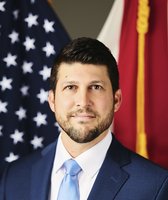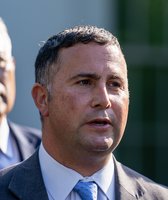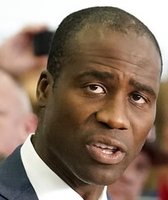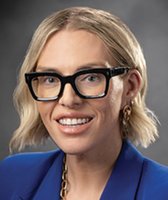Stand up for the facts!
Our only agenda is to publish the truth so you can be an informed participant in democracy.
We need your help.
I would like to contribute
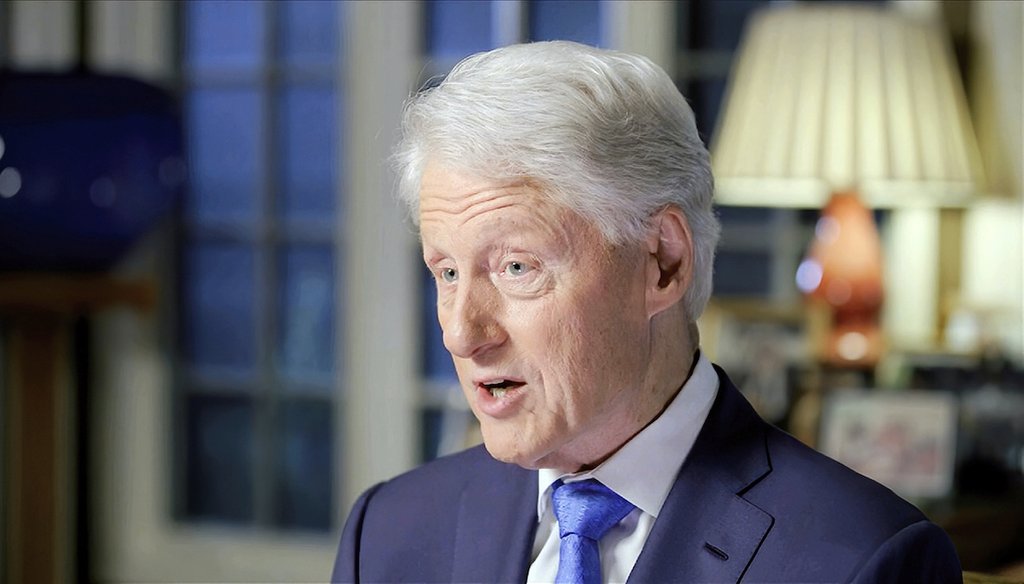
In this image from video, former President Bill Clinton speaks during the second night of the Democratic National Convention on Aug. 18, 2020. (DNC via AP)
If Your Time is short
-
Former President Donald Trump’s 2016 payment to adult film actress Stormy Daniels and former President Bill Clinton’s 1998 settlement with Paula Jones are markedly different, legal experts said.
-
Clinton personally paid Jones to settle a public lawsuit after an election.
-
Trump secretly funneled money through his lawyer to pay Daniels before the 2016 presidential election. His lawyer pleaded guilty to crimes tied to his role in arranging the payments. Legal experts said the Manhattan district attorney might argue that Trump falsified business records or violated campaign finance law in the process.
After former President Donald Trump claimed his arrest in connection with a hush money case involving adult film star Stormy Daniels would be imminent, his supporters took to social media to draw comparisons with another scandal from a past president: Bill Clinton.
Although Trump’s legal team said it hadn’t received any specific notice from prosecutors, his post followed reports of a potential indictment on charges stemming from the $130,000 payoff in 2016. If Trump is arrested, it would mark the first-ever criminal indictment of a former U.S. president.
The posts decried a double standard and claimed that Clinton got off lightly after he paid $850,000 to Paula Jones — who was an Arkansas state employee when Clinton served as Arkansas’ governor — following her accusations of sexual impropriety in the early 1990s.
"Bill Clinton paid Paula Jones $850K in a civil settlement and nothing happened to him," said a March 20 Twitter post from U.S. Rep. Andy Biggs, R-Ariz. "Now President Trump does something similar and the NY DA wants to jail him. We have a two-tier justice system."
A viral March 18 Instagram post featured photos of Clinton and Jones and said, "Bill Clinton paid Paula Jones $850,000 to go away. I don’t remember them raiding his lawyer’s office."
Rudy Giuliani, Trump’s former lawyer and former New York City mayor, also brought up Clinton during a March 18 interview with conservative media outlet Newsmax, saying, "What about Bill Clinton, wasn’t that worse?"
Although Trump’s and Clinton’s situations both involve politicians making payments to women, the similarities end there.
Clinton personally paid Jones to settle a sexual harassment lawsuit after Jones publicly aired her allegations, and after Clinton had already been elected president.
By comparison, Trump used his longtime personal lawyer, Michael Cohen, to secretly pay Daniels days before the 2016 presidential election to prevent her allegations of an affair from becoming public. Legal experts said the district attorney might argue that Trump falsified business records or violated campaign finance law in the process.
Clinton’s situation was "a public settlement of a public lawsuit after an election, not a private payoff before an election," said Jerry Goldfeder, a veteran election and campaign finance lawyer. "There is no comparison."
We reached out to the Clinton Foundation for comment, but received no response.
Clinton’s settlement
In 1994, after Clinton was already serving his first term as U.S. president, Jones filed a lawsuit in U.S. district court in Little Rock, Arkansas, alleging that Clinton exposed himself to her in an Arkansas hotel room in 1991; she sought $700,000 for damages.
The case initially was dismissed in 1998 on the grounds that Jones failed to show damages.
Jones appealed months later, prompting Clinton’s offer to pay her to settle the lawsuit. As part of the agreement, Clinton did not acknowledge guilt.
The lawsuit spiraled into a much larger story, providing the motivation for a special counsel to broaden the investigation and examine the president’s financial dealings. That led lawyers to investigate other affair accusations, which culminated in Clinton’s impeachment battle.
Trump’s payoff
Daniels claimed she and Trump had an affair in 2007, which Trump has denied. She first discussed the relationship in a 2011 interview with In Touch magazine, but the story didn’t publish after Cohen threatened to sue the magazine, according to a CBS News "60 Minutes" report.
Daniels’ claim was revived when, in January 2018, The Wall Street Journal reported that Cohen had arranged for her to receive $130,000 in exchange for her silence just before the 2016 presidential election.
The story about how the payment was made, who supplied the money and who knew about it continued to change in the months that followed.
In April 2018, the FBI searched Cohen’s office and home as part of an investigation into bank fraud, wire fraud and campaign finance violations. In August 2018, Cohen pleaded guilty to campaign finance violations and other crimes tied to his role in arranging the payments to Daniels and another woman, former Playboy model Karen McDougal.
Prosecutors in the Cohen case said the payments to Daniels violated federal campaign finance laws because they were intended to benefit Trump’s 2016 presidential campaign. So, prosecutors treated the payments as campaign contributions that were not reported to the Federal Election Commission.
In May 2018, Giuliani revealed that Trump had personally reimbursed Cohen for the payments, which Trump confirmed in a series of tweets. Trump described the arrangement as "a private contract between two parties, known as a non-disclosure agreement."
In the federal case against Cohen, prosecutors said Trump’s company accounted for the reimbursement to Cohen as a retainer fee when there was "no such retainer agreement." The reimbursement was unrelated to any legal services Cohen provided, according to prosecutors.
The Manhattan district attorney’s inquiry into Trump’s role in the payoff has spanned nearly five years. To charge Trump with a felony, prosecutors would need to show that Trump’s "intent to defraud" included an intent to commit or hide a second crime.
Since his arrest, Cohen has repeatedly said that Trump directed him to pay Daniels to ensure her silence. Cohen is expected to testify in front of the Manhattan grand jury.
RELATED: Timeline: What Donald Trump has said about Stormy Daniels and $130,000 payment
RELATED: Q&A: Can Trump run for president if indicted in Stormy Daniels case? What happens if he's arrested?
Our Sources
CNN, Trump says he expects to be arrested Tuesday as New York law enforcement prepares for possible indictment, March 19, 2023
New York Times, Prosecutors Signal Criminal Charges for Trump Are Likely, March 9, 2023
Donald Trump Truth Social post, March 18, 2023
Instagram post, March 18, 2023
Facebook post, March 19, 2023
Newsmax video, March 18, 2023
PolitiFact, Newt Gingrich misleading in saying Bill Clinton paid $850,000 'penalty', Oct. 27, 2016
PolitiFact, The $130,000 Stormy Daniels payoff: Was it a campaign expenditure?, May 3, 2018
PolitiFact, The timeline of Donald Trump’s explanations for the Stormy Daniels payment, May 3, 2018
Politico, Bill Clinton settled the Paula Jones case. He wasn't fined., Oct. 9, 2016
JustSecurity.org, The Manhattan DA’s Charges and Trump’s Defenses: A Detailed Preview, March 20, 2023
Washington Post, Judge Dismisses Jones v. Clinton Lawsuit, April 2, 1998
Washington Post Clinton Settles Paula Jones Lawsuit for $850,000, Nov. 14, 1998
CBS News, Stormy Daniels describes her alleged affair with Donald Trump, August 22, 2018
Wall Street Journal, Trump Lawyer Arranged $130,000 Payment for Adult-Film Star’s Silence, Jan. 12, 2018
Justice.gov, Michael Cohen Pleads Guilty In Manhattan Federal Court To Eight Counts, Including Criminal Tax Evasion And Campaign Finance Violations, August 21, 2018
Twitter, Donald Trump tweet, May 3, 2018
The New York Times, Giuliani Says Trump Repaid Cohen for Stormy Daniels Hush Money, May 2, 2018
Phone interview, Jerry H. Goldfeder, veteran election and campaign finance lawyer, March 20, 2023
Email interview, Michael S. Kang, law professor at Northwestern University, March 21, 2023






